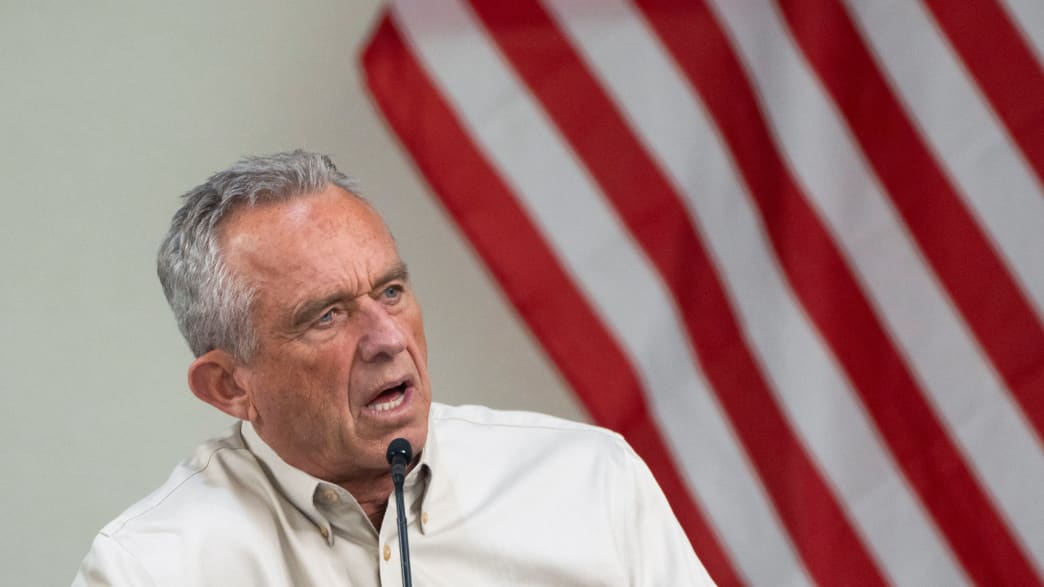Federal judge says Trump administration crossed First Amendment line with Education Dept. emails
A federal judge just dropped a bombshell ruling that the Trump administration stepped over the constitutional line with partisan automated messages during a government shutdown.
This saga, centered on the Department of Education (DOE), boils down to what the judge found was a First Amendment violation in which federal workers claimed they were pushed into parroting political talking points via email, as The Hill reports.
Let’s rewind to the start: during a funding lapse, the DOE decided to play political hardball by altering out-of-office messages for furloughed employees to pin the shutdown on Democrats. It’s a bold move, sure, but one that raised eyebrows for turning civil servants into unwilling campaign ads.
Judge Slams DOE for Partisan Overreach
Enter U.S. District Judge Christopher Cooper, who didn’t mince words in his Friday ruling, declaring this tactic a clear breach of constitutional protections.
The American Federation of Government Employees (AFGE), backed by legal heavyweights Democracy Forward and Public Citizen Litigation Group, had already fired off a cease-and-desist letter to the DOE. When that didn’t stop the partisan emails, they escalated with a lawsuit, arguing federal workers shouldn’t be pawns in a political blame game.
Judge Cooper agreed, pointing out the DOE’s sneaky timing -- waiting until employees lost email access during the furlough to slip in these loaded messages. Talk about a low blow; it’s like changing the locks while someone’s out of town.
Civil Servants Turned into Political Messengers
The ruling underscored a grim reality: the DOE essentially transformed its workforce into mouthpieces for partisan rhetoric through official channels. That’s not just overreach; it’s a slap in the face to the nonpartisan ethos of public service.
Judge Cooper ordered the DOE to revert to the original, employee-crafted automated replies and put an end to this political puppeteering. “Nonpartisanship is the bedrock of the federal civil service; it ensures that career government employees serve the public, not the politicians,” he stated.
But Cooper didn’t stop there, adding, “By commandeering its employees’ e-mail accounts to broadcast partisan messages, the Department chisels away at that foundation.” Ouch -- that’s a judicial jab at bureaucratic overstep, and it’s hard to argue with the logic when unelected officials are forced to play partisan cheerleaders.
Legal Experts Weigh In
Kedric Payne, vice president and senior director of ethics at the Campaign Legal Center, hailed the decision as a win for integrity in government. “The fight will continue for our nation’s civil service to remain nonpartisan,” Payne said. His point hits home -- civil servants aren’t elected officials, so why drag them into the mud of political squabbles?
Payne’s take aligns with a broader concern about keeping federal duties free from ideological agendas. When even automated replies start sounding like campaign ads, you’ve got to wonder where the line is drawn between governance and propaganda.
Meanwhile, the DOE’s own automated response to inquiries from The Hill doubled down, stating that they’re on furlough due to a funding lapse and will reply when operations resume. It conveniently tossed the blame at Senate Democrats for blocking a resolution to fund the government. Sounds familiar, doesn’t it—a bit like the very messages Judge Cooper just ruled against?
Balancing Free Speech and Government Neutrality
Now, let’s be fair: political leaders on any side have every right to point fingers over a shutdown mess. But using federal workers as unwilling megaphones? That’s where this conservative observer draws the line, even if the message might align with frustrations over progressive gridlock in Congress.
The principle here matters more than the politics -- government employees serve the nation, not a party platform. Forcing them to echo partisan talking points risks eroding trust in our institutions, something conservatives and liberals alike should guard against.
So, while the Trump administration’s intent might’ve been to highlight funding failures, the method was a misstep that Judge Cooper called out. This ruling isn’t just a legal smackdown; it’s a reminder that the First Amendment isn’t a toy for political gamesmanship, no matter who is in the Oval Office.





